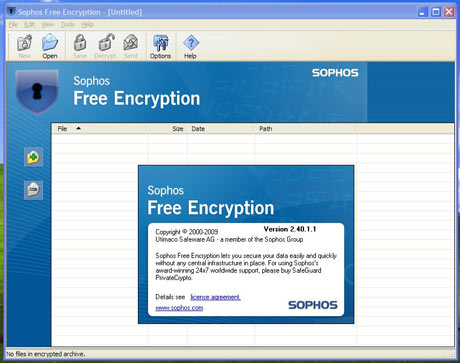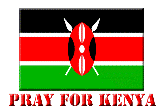At a hotel in Ivory Coast’s largest city Abidjan 10 days ago, former
Tanzanian President Benjamin Mkapa bounded across the lobby to greet
Cord leader Raila Odinga.
Mr Mkapa is well known for his bubbly, jovial demeanour but this time he had a concerned look on his face.
“Raila,” he said. “Ni jambo gani hii nasoma kwa magazeti ati wewe huwezi tumia VIP (lounge) JKIA? (What is this I hear that you cannot use the VIP lounge at the Jomo Kenyatta International Airport in Nairobi?).”
“It is true,” Mr Odinga said. “You and (Frederick) Sumaye (former Prime Minister of Tanzania) can use the VIP lounge in Kenya but I cannot.”
Mr Odinga told that story with a chuckle in an interview with the Sunday Nation on Friday.
But he was making a more serious point. The ODM party leader has in the recent past become the target of what appears to be a campaign of intimidation and bullying by elements within the government, including the withdrawal of most security personnel assigned to him and the vehicles they used.
One of the country’s most senior political figures now travels around without a police escort and his personal security detail has been cut down to the bare minimum. He and his family were also notoriously subjected to humiliation when they were barred from using the VIP lounges at the airport three weeks ago while on trips to Kisumu and a second time before Mr Odinga travelled to the US.
The disputes Mr Odinga has engaged in with the authorities and the repeated security breaches at his offices have raised questions about the maturity of the nation’s democratic culture.
In stable democracies on the continent such as Ghana, South Africa, Botswana, Mauritius and Tanzania, former presidents, vice- presidents and prime ministers are offered state security and reasonable levels of compensation after leaving office.
Mr Odinga said the Jubilee administration should borrow a leaf from those countries although he was at pains not to blame the treatment to which he has been subjected directly to either President Kenyatta or Deputy President William Ruto.
“I am ordinarily not the complaining type,” Mr Odinga said. “I recognise that there is another government in power and they are entitled to their attitudes. But I think we should be a civilised country that respects its citizens. Everybody has rights: children, the sick, the disabled, the infirm, the aged, everybody. At every stage of life people should be treated with respect. It’s a culture we should institutionalise.”
The Cord leader pointed to the almost total withdrawal of the security personnel assigned to him to illustrate his point.
“In my home (in Karen) there is only one person. When he is asleep, I have nobody there. The guards assigned to my home are not provided with transport. That leaves the question whether they are supposed to carry guns in a matatu. I was a Prime Minister who was an equal partner with the President.
That’s why I had 20 ministers and Kibaki had 20 ministers. They say I’m not entitled to anything. I am not a VIP. Look what they do for the others. Nyayo (former President Moi) is given six cars. Kibaki has 25 guards. He has been given a budget of Sh250 million for an office. What about me? Don’t I have things to do? I have not been paid even a single cent in pension since I left office. Yet I served as an MP for 20 years, as a minister and prime minister. How am I supposed to survive for the rest of my life?”
Secretary to the Cabinet Francis Kimemia declined to comment and asked that all inquiries be directed to Inspector-General of Police David Kimaiyo. When Mr Kimaiyo was reached, he said he was in meetings and could not discuss the issue.
Key leaders in government, including House Majority Leader Aden Duale, have demanded that Mr Odinga retires from politics before he can receive any retirement benefits but the former PM dismissed this out of hand.
“I am not their subject. I can’t be ordered around by the spokesmen of people. They never brought me into politics and they can’t force me to retire. I will not be held to ransom because of benefits.
It’s a carrot they are dangling before me but they should be more civilised. I have a mission in politics and it is to serve the people. Only they can tell me to retire and not some government functionaries.”
The former PM said the notion that his security cannot be catered for because a retirement benefits Act had not been passed rang hollow because top officials in government enjoyed wide discretionary powers and could make those arrangements without the need for a special law.
He advised the government to concentrate on the task of delivering on the promises they had made to Kenyans and to spend less time attempting to humiliate opposition leaders.
“I don’t want to speculate on the reasons behind this. Maybe it’s insecurity or some kind of phobia which I cannot explain. As you can see, I have tried to be very quiet and very uncontroversial. I’ve avoided issues which could bring me into conflict with this system. I thought it’s necessary to give them space to implement their programmes. Then they can be judged by what they have been able to deliver.”
On speculation that some within government have been pushing him to retire so that they can inherit his political base, Mr Odinga said that his best advice to anyone seeking to win over the ODM base would be to deliver on their pledges to Kenyans rather than trying to force Cord leaders to exit the scene.
“Whoever is doing this is trying to break my spirit. They are spoiling for a fight. I don’t know who is doing it. I can’t accuse the President or Deputy President. I don’t think they would stoop so low. I would want to think they are above that because even I and Kibaki used to have our differences but we would find a way to manage them.”
The former Prime Minister, who with President Kibaki was one of the principals in charge of the grand coalition government formed in February 2008 to bring to an end the unrest which followed the 2007 elections, offered his assessment of Mr Kenyatta’s first three months in office.
“We formed a Cabinet within two days of taking office and swore them in and started work. This government is still a work in progress. I would have done things differently. Time is of the essence. 100 days on we still don’t have strategic plans for the ministries to know what they need to do. Within two weeks I and Kibaki had laid down the plans for the government.
We were a coalition and the first thing we did was to form a taskforce to harmonise our manifestoes. Shortly thereafter we held a workshop at the Kenya School of Monetary Studies and told each ministry what we wanted and they hit the ground running. Some of the leaders of this government were in the Cabinet and I wish they learned from it because they are digital and we were analogue.”
Mr Odinga said he would continue to work to strengthen the Opposition and ODM, which he said needed to be consolidated and re-energised.
The former PM said the last election showed that the nation’s reform process was not complete and criticised the electoral commission and the Supreme Court for the way they handled the election.
He also said the country needed to re-examine the role the National Intelligence Service plays in the electoral process, arguing that the agency played an active part in blocking Cord’s path to power.
Mr Odinga said he remains optimistic about Kenya’s future and made the case that the grand coalition had laid the grounds for the country’s economic take-off with their large-scale investments in infrastructure, special economic zones and the Lamu port project and added that Kenya was a “plane taxiing. It just needs the right pilot to fly and time will tell if the current leaders will press the right buttons”.
On the question of his security and benefits, Mr Odinga concluded with a trademark proverb.
“When Mkapa asked me about this, I told him the story of the tortoise. Somebody met a tortoise on a path and decided to punish it. He picked it up and threw it into a river. He didn’t know that the river was the tortoises’ second home. The tortoise was very happy. It began to swim and enjoy its new environment. They say I am not a VIP and have thrown me to the public. They don’t know that’s where I am happiest.
Raila :Jubilee won't force me to quit politics by Murithi Mutiga
Mr Mkapa is well known for his bubbly, jovial demeanour but this time he had a concerned look on his face.
“Raila,” he said. “Ni jambo gani hii nasoma kwa magazeti ati wewe huwezi tumia VIP (lounge) JKIA? (What is this I hear that you cannot use the VIP lounge at the Jomo Kenyatta International Airport in Nairobi?).”
“It is true,” Mr Odinga said. “You and (Frederick) Sumaye (former Prime Minister of Tanzania) can use the VIP lounge in Kenya but I cannot.”
Mr Odinga told that story with a chuckle in an interview with the Sunday Nation on Friday.
But he was making a more serious point. The ODM party leader has in the recent past become the target of what appears to be a campaign of intimidation and bullying by elements within the government, including the withdrawal of most security personnel assigned to him and the vehicles they used.
One of the country’s most senior political figures now travels around without a police escort and his personal security detail has been cut down to the bare minimum. He and his family were also notoriously subjected to humiliation when they were barred from using the VIP lounges at the airport three weeks ago while on trips to Kisumu and a second time before Mr Odinga travelled to the US.
The disputes Mr Odinga has engaged in with the authorities and the repeated security breaches at his offices have raised questions about the maturity of the nation’s democratic culture.
In stable democracies on the continent such as Ghana, South Africa, Botswana, Mauritius and Tanzania, former presidents, vice- presidents and prime ministers are offered state security and reasonable levels of compensation after leaving office.
Mr Odinga said the Jubilee administration should borrow a leaf from those countries although he was at pains not to blame the treatment to which he has been subjected directly to either President Kenyatta or Deputy President William Ruto.
“I am ordinarily not the complaining type,” Mr Odinga said. “I recognise that there is another government in power and they are entitled to their attitudes. But I think we should be a civilised country that respects its citizens. Everybody has rights: children, the sick, the disabled, the infirm, the aged, everybody. At every stage of life people should be treated with respect. It’s a culture we should institutionalise.”
The Cord leader pointed to the almost total withdrawal of the security personnel assigned to him to illustrate his point.
“In my home (in Karen) there is only one person. When he is asleep, I have nobody there. The guards assigned to my home are not provided with transport. That leaves the question whether they are supposed to carry guns in a matatu. I was a Prime Minister who was an equal partner with the President.
That’s why I had 20 ministers and Kibaki had 20 ministers. They say I’m not entitled to anything. I am not a VIP. Look what they do for the others. Nyayo (former President Moi) is given six cars. Kibaki has 25 guards. He has been given a budget of Sh250 million for an office. What about me? Don’t I have things to do? I have not been paid even a single cent in pension since I left office. Yet I served as an MP for 20 years, as a minister and prime minister. How am I supposed to survive for the rest of my life?”
Secretary to the Cabinet Francis Kimemia declined to comment and asked that all inquiries be directed to Inspector-General of Police David Kimaiyo. When Mr Kimaiyo was reached, he said he was in meetings and could not discuss the issue.
Key leaders in government, including House Majority Leader Aden Duale, have demanded that Mr Odinga retires from politics before he can receive any retirement benefits but the former PM dismissed this out of hand.
“I am not their subject. I can’t be ordered around by the spokesmen of people. They never brought me into politics and they can’t force me to retire. I will not be held to ransom because of benefits.
It’s a carrot they are dangling before me but they should be more civilised. I have a mission in politics and it is to serve the people. Only they can tell me to retire and not some government functionaries.”
The former PM said the notion that his security cannot be catered for because a retirement benefits Act had not been passed rang hollow because top officials in government enjoyed wide discretionary powers and could make those arrangements without the need for a special law.
He advised the government to concentrate on the task of delivering on the promises they had made to Kenyans and to spend less time attempting to humiliate opposition leaders.
“I don’t want to speculate on the reasons behind this. Maybe it’s insecurity or some kind of phobia which I cannot explain. As you can see, I have tried to be very quiet and very uncontroversial. I’ve avoided issues which could bring me into conflict with this system. I thought it’s necessary to give them space to implement their programmes. Then they can be judged by what they have been able to deliver.”
On speculation that some within government have been pushing him to retire so that they can inherit his political base, Mr Odinga said that his best advice to anyone seeking to win over the ODM base would be to deliver on their pledges to Kenyans rather than trying to force Cord leaders to exit the scene.
“Whoever is doing this is trying to break my spirit. They are spoiling for a fight. I don’t know who is doing it. I can’t accuse the President or Deputy President. I don’t think they would stoop so low. I would want to think they are above that because even I and Kibaki used to have our differences but we would find a way to manage them.”
The former Prime Minister, who with President Kibaki was one of the principals in charge of the grand coalition government formed in February 2008 to bring to an end the unrest which followed the 2007 elections, offered his assessment of Mr Kenyatta’s first three months in office.
“We formed a Cabinet within two days of taking office and swore them in and started work. This government is still a work in progress. I would have done things differently. Time is of the essence. 100 days on we still don’t have strategic plans for the ministries to know what they need to do. Within two weeks I and Kibaki had laid down the plans for the government.
We were a coalition and the first thing we did was to form a taskforce to harmonise our manifestoes. Shortly thereafter we held a workshop at the Kenya School of Monetary Studies and told each ministry what we wanted and they hit the ground running. Some of the leaders of this government were in the Cabinet and I wish they learned from it because they are digital and we were analogue.”
Mr Odinga said he would continue to work to strengthen the Opposition and ODM, which he said needed to be consolidated and re-energised.
The former PM said the last election showed that the nation’s reform process was not complete and criticised the electoral commission and the Supreme Court for the way they handled the election.
He also said the country needed to re-examine the role the National Intelligence Service plays in the electoral process, arguing that the agency played an active part in blocking Cord’s path to power.
Mr Odinga said he remains optimistic about Kenya’s future and made the case that the grand coalition had laid the grounds for the country’s economic take-off with their large-scale investments in infrastructure, special economic zones and the Lamu port project and added that Kenya was a “plane taxiing. It just needs the right pilot to fly and time will tell if the current leaders will press the right buttons”.
On the question of his security and benefits, Mr Odinga concluded with a trademark proverb.
“When Mkapa asked me about this, I told him the story of the tortoise. Somebody met a tortoise on a path and decided to punish it. He picked it up and threw it into a river. He didn’t know that the river was the tortoises’ second home. The tortoise was very happy. It began to swim and enjoy its new environment. They say I am not a VIP and have thrown me to the public. They don’t know that’s where I am happiest.
Raila :Jubilee won't force me to quit politics by Murithi Mutiga






